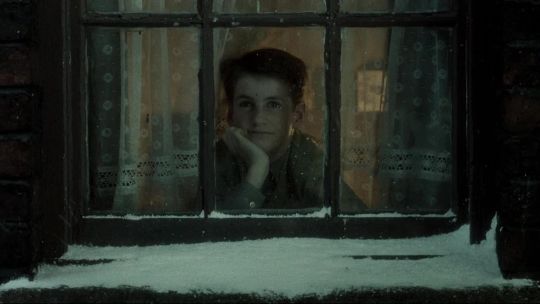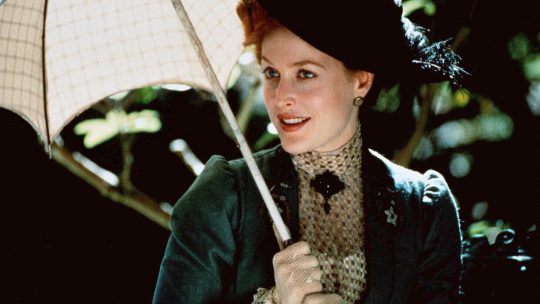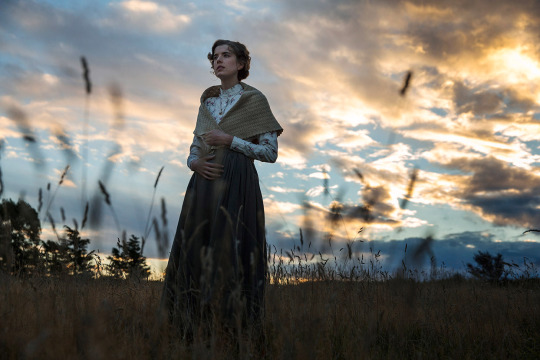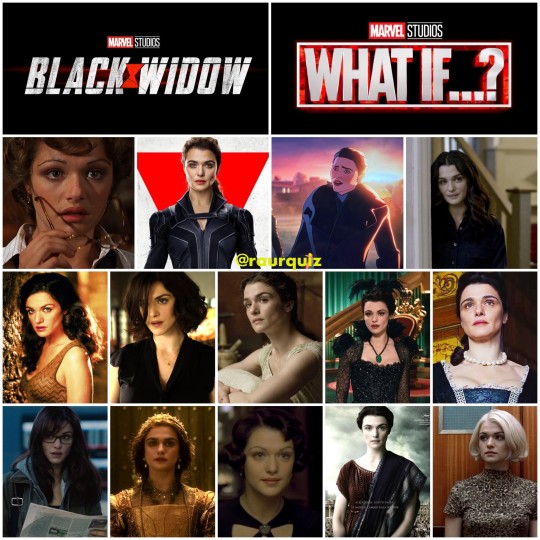#The deep blue sea
Explore tagged Tumblr posts
Text

Been binging Tom Hiddleston media and I have an important chart for you all
#Help I have not stopped watching Tom Hiddleston movies since I finished Loki Season 2#Why is there so much infidelity in his body of work#(affectionate)#tom hiddleston#midnight in paris#i saw the light#the essex serpent#will ransome#crimson peak#thomas sharpe#archipelago#the night manager#jonathan pine#high rise#robert laing#the deep blue sea#unrelated#betrayal#loki#james hook#early man#lord nooth#only lovers left alive#war horse#captain nicholls#kong skull island#captain james conrad
1K notes
·
View notes
Text






The Deep Blue Sea (2011) Terence Davies
October 21st 2024
#the deep blue sea#2011#terence davies#rachel weisz#tom hiddleston#simon russell beale#ann mitchell#harry hadden-paton#karl johnson#film 4
36 notes
·
View notes
Text
Watching The Deep Blue Sea on National Theatre at Home 👏🏻👏🏻
45 notes
·
View notes
Text








Terence Davies (1945-2023) era el más grande director británico vivo. No tuvo el éxito comercial de John Boorman o el reconocimiento en festivales de Ken Loach. Pero ningún otro director británico retrató mejor la cultura popular de la postguerra, la alegría de los momentos mundanos y la crueldad de las convencios sociales como Davies. Privilegió la mirada de los niños y las mujeres, pero también dio protagonismo a su ciudad natal, Liverpool. Davies dio voz a su homosexualidad al igual que a su fe religiosa. Prodigó finales felices y despiadados por igual. Escribió historias originales, con grandes tintes autobiográficos, pero también fue un eficaz adaptador de novelas; no en balde, hizo dos películas sobre eminentes poetas. Terence Davies amplió los horizontes del cine británico al tiempo que hizo películas personales y conmovedoras. QEPD.
Terence Davies (1945-2023) was the greatest living British director. He didn't have the commercial success of John Boorman or the festival recognition of Ken Loach. But no other British director portrayed post-war popular culture, the joy of mundane moments and the cruelty of social conventions better than Davies. He privileged the gaze of children and women, but also gave prominence to his hometown, Liverpool. Davies gave voice to his homosexuality as well as his religious faith. He lavished happy and merciless endings alike. He wrote original stories, with great autobiographical overtones, but he was also an effective adapter of novels; not in vain, he filmed two biopics about eminent poets. Terence Davies expanded the horizons of British cinema while making personal and moving films. RIP.
#Terence Davies#The Long Day Closes#The House of Mirth#The Deep Blue Sea#Sunset Song#Benediction#A Quiet Passion#Death and Transfiguration#Children#Liverpool#Madonna and Child#emily dickinson#Wilfred Owen#movies#Distant Voices Still Lives
63 notes
·
View notes
Text

Born on this day: brilliant, fragile and intense English stage and film actress Vivien Leigh (5 November 1913 - 8 July 1967). Coincidentally, that weird British TV station Talking Pictures here screened Leigh’s rarely glimpsed, forgotten and unloved 1955 melodrama The Deep Blue Sea (tagline: “What happens to a married woman when she’s trapped between the devil … and the Deep Blue Sea”) on Sunday. (You always know when you’re watching Talking Pictures: the ads are all for walk-in bathtubs, mobility scooters, funeral and will-making services and Dormeo mattresses). For her first film following her Oscar-winning triumph in A Streetcar Named Desire (1951), Leigh chose this adaptation of Terence Rattigan’s hit stage play. (In between, she was forced to drop out of Elephant Walk (1953) due to mental health struggles and was replaced by Elizabeth Taylor. After this one, Leigh wouldn’t make another film for six years). The Deep Blue Sea is a movie about stoical, genteel suffering and suicide notes over cigarettes and glasses of scotch, with everyone speaking in posh old-school received pronunciation. Costumed by Pierre Balmain, her face a white-powdered mask of pain, Leigh portrays Hester, an upper-crust middle-aged society woman who abandons the security of her fifteen-year marriage to a judge to embark on an ill-fated love affair with a feckless younger man. Anatole Litvak’s direction is stodgy and indifferent (weirdly, he gives Leigh virtually no close-ups). But it can’t help but exert fascination as an addition to Leigh’s gallery of troubled, self-destructive women who either go mad or die by the end of the film: think Myra in Waterloo Bridge (1940), Anna Karenina (1948), Blanche DuBois in Streetcar and Karen Stone in The Roman Spring of Mrs Stone (1961). Deep Blue Sea was clearly filmed within the confines of a studio, but the view from Hester’s window is Battersea. (London is delineated by shots of black cabs, red phone boxes and red buses. British character actress Dandy Nichols from the sitcom Till Death Do Us Part plays Hester’s cockney landlady). (The Deep Blue Sea was very interestingly remade in 2011 by Terence Davies with Rachel Weisz in Leigh’s role).
#vivien leigh#the deep blue sea#anatole litvak#british actress#british cinema#melodrama#terrence rattigan#lobotomy room#old movies#roman spring of mrs stone#streetcar named desire#anna karenina
12 notes
·
View notes
Text
Happy Birthday to the one man that makes my panties drop and my knees weak. 🥰🥵🥳

#tom hiddleston#i❤️t.h.#tomhiddleston#thlover94#happy birthday#loki#thomas sharpe#hank williams#jonathan pine#the night manager#isawthelight#the deep blue sea#crimson peak#loki series#the avengers#marvel mcu#mcu loki
18 notes
·
View notes
Text
None of it matters! There is no grand purpose or plan. The ripples, the splashes I make, what worth does it have compared to the ocean? The sun is warm and the water is cool and I am so very alive.
4 notes
·
View notes
Text
youtube
A video I made of Tom Hiddleston kissing scenes!! Enjoy and thanks for watching!!
#Tom Hiddleston#Tom Hiddleston kiss#kiss#first kiss#kissing#Loki#Loki show#Loki kiss#sylki#Sylki kiss#crimson peak#unrelated#suburban shootout#return to cranford#the deep blue sea#the hollow Crown#the essex serpent#i saw the light#Tom kiss#kissing video#fan edit#kiss compilation#only lovers left alive#Coriolanus#the night manager#Youtube
41 notes
·
View notes
Text

#Happybirthday #RachelWeisz #actress #melinavostokoff #blackwidow #whatif #themummy #returns #constantine #theconstantgardener #thelobster #thefountain #disobedience #TheFavourite #TheMercy #OztheGreatandPowerful #TheBourneLegacy #TheDeepBlueSea #TheLovelyBones #Agora #Sunshine
#happybirthday#rachel weisz#actress#melina vostokoff#black widow#what if#the mummy#returns#constantine#the constant gardener#the lobster#thefountain#disobedience#the favourite#themercy#oz the great and powerful#the bourne legacy#the deep blue sea#the lovely bones#agora
7 notes
·
View notes
Text
listening to an old tom hiddleston interview regarding 'the deep blue sea' and he said something that made me think of the characterisation of the tenth doctor regarding martha. he was talking of his character freddie, and he said he is "dynamic, attractive and charming" but underneath "there's a loneliness that dresses itself up as cruelty."
now, i am in no way shape or form saying ten treated martha in any way how freddie does hester in 'the deep blue sea.' it's a completely different story, different themes, you get it. but it made me think of ten and martha. i'm not just being dramatic when i say the doctor is cruel to martha, it's said several times by russell t davies on commentaries. it's within the subtext of the show that the doctor is going beyond impolite to her.
but it just made me think. because we know that the doctor is a sad and lonely man here. ever since the time war and then compounded with the loss of the first companion he allows himself to become attatched too, as well as the 'found family'. i don't think the doctor is inheritantly a bad person, who goes out his way to hurt people. but i do think series 3 demonstrates that his loneliness can manifest in a really negative way. most likely because this is not something he has had to deal with before. he always had someone. a companion or his home, even when he didn't like it very much and i think it's why martha stays so long. and also why she leaves. it's not because she's a door mat, or even because of her own romantic feelings. it's because i think she knows deep down, she wants to be there for him because he's got no one else, he says so in 'the family of blood' but simulataneously, she leaves because he's weighing her down too. martha isolates herself with him. and she is lonely because he's emotionally distant. he'll get close then freeze over.
18 notes
·
View notes
Text
It's impressive how, at this point, everything is GO coded.
Everything.
I'm seeing a theatral drama, "the deep blue sea".
(I just found out there's also a movie with Tom Hiddleston and Rachel Weisz)
What car could one of the protagonists have? Obviously, a Bentley.
And where did they go for breakfast?
Obviously, at the Ritz.
And which writer could they have been talking about, quoting one of her love phrases?
Obviously, Jane Austen.
("She had balls!")

#the deep blue sea#theatre#good omens#Bentley (maybe not ineffable this time)#Ritz#obviously#jane austen
4 notes
·
View notes
Text
Terence Davies, who died last Saturday, was a visionary British director, who brought passion and eccentricity to every film. Actors including Jennifer Ehle, Peter Capaldi, Simon Russell Beale and Peter Mullan recall his unique style and sensitivity
#simon russell beale#terence davies#the deep blue sea#benediction#movie#tom hiddleston#rachel weisz#jennifer ehle#peter capaldi#peter mullan#guardian#2023
7 notes
·
View notes
Text
Beware of passion, Hester, it always leads to something ugly,” says the mother of the man that Hester is cheating on. It’s intended as snide smalltalk, yet this line foreshadows the forces that will toss her daughter-in-law around like a rag doll in a hurricane.
Rachel Weisz summons superhuman dignity to play a 1950s housewife humiliated by desire in Terence Davies’ The Deep Blue Sea. Hester leaves her marriage to kindly High Court judge, Sir William Collyer (Simon Russell Beale), drawn by the promise of sexual passion with a younger, flakier man, Freddie (Tom Hiddleston).
Freddie is a former RAF pilot who is seeking his next adventure after World War Two. The reality of a relationship could never keep his attention. Hester knows this, yet still hurls herself out of her marriage and into freefall. Her jilted, still caring husband questions her logic: “But how, in the name of reason, could you have gone on loving a man who, by your own confession, can give you nothing in return?” She responds: “Oh, but he can give me something in return, and even does, from time to time.” He asks, “What?” She says, “Himself.”
This is the story of a high-stakes sexual awakening. Weisz’s voice drops to a lower pitch when she says the word “himself”, as if accessing an orgasmic sense memory. She is self-possessed at the same time as she is lost. She owns the choice to be with Freddie, even though it seems like a kamikaze move to those, like her mother-in-law, who favour guarded enthusiasm over passion.
The Deep Blue Sea began in 1952 as a play by Terence Rattigan, who coded onto Hester the story of his secret lover of 10 years. Kenny Morgan left Rattigan for a man who mistreated him until Morgan took his own life – an act we see Hester trying and failing at the outset. Rattigan imprinted himself onto Sir William, a reasonable man bewildered by the wrecking ball of sex that smashes through his relationship bubble.
To complete the ping-pong of transference between Hester and gay storytellers named Terence, Davies’ adaptation cleaves to her perspective, empathising with the experience of an emotionally tortured women, as he has done in The House of Mirth and A Quiet Passion. He decided he wanted Weisz for his Hester after turning on the TV one sleepless night and catching her in Beeban Kidron’s period romance Swept from the Sea. What landed was “this wonderful luminosity and wonderful eyes”.
This wonderful luminosity elevates Hester’s choices beyond naivety or self-destructiveness. Those wonderful eyes watch – agog and enraptured – as for the first time in her sheltered life a man that she actually physically wants targets her with seduction. Freddie’s dialogue is cringeworthy but she is ripe for the plucking. We wince over the chasm between his cheap lines and her wholehearted responses. She is instantly and permanently available in the deepest of ways, while he fancies her in a capricious fashion. Turmoil is rendered by the vision of a woman stepping into her desires, which is powerful, yet the catalyst is a man too callow to meaningfully care, which is painful, too painful for her to grasp.
This is a melodrama. Love is the difference between life and death! But it is a distinctly English melodrama, with dialogue expressed in a mode that strains for propriety. “This is a tragedy,” says a distraught Sir William, visiting Hester after her attempted suicide. “It’s hardly Sophocles,” she responds. Weisz’s performance is attuned to the fact that when the material is so emotionally big, the performance can be small. As Freddie begins the process of leaving, she negotiates for scraps of his time without the expected hysterics. She acts out Hester’s demeaning behaviour with a calm resolve.
“I think what interested me about [Hester] was that she really, kind of completely humiliated herself. She has no pride. She doesn’t hold it together.” Weisz told Complex in 2012. “Nowadays, you get over it and your girlfriend takes you out for a drink and says, ‘Come on, move on – there’s plenty more fish in the sea.’”
The sheer abandon of Hester, her total lack of moderation or modulation, is what makes her a character for the ages – a Madame Bovary upon Knightsbridge. She is obsessed but not insane. She has found an erotic appetite and cannot imagine anyone but Freddie ever sating it. The story would not work and her character would not stand up if the audience did not see the bliss he once afforded, and so it comes early, a high watermark that acts as a counterpoint to the suffering that follows.
There are competing versions of The Deep Blue Sea in the culture, most recently a phenomenal stage play at the National Theatre starring the late, great Helen McCrory as Hester with Tom Burke as Freddie. Even hindered by Hiddleston (a wipe-clean fop without Burke’s dirty magnetism) Davies’ film has one enduring scene that nails why passionate fulfilment can seem worth any subsequent ugliness. It arrives during the opening as Hester, clad in a dressing gown all alone in a boarding house, writes Freddie a suicide note. She remembers the early days of their meeting. ‘Adagio for Strings’ by Samuel Barber plays because this moment needs to be operatic.
Davies mostly trades in the language of glances, so the one sex scene has to do a lot. Weisz and Hiddleston are so intertwined that their limbs seem to belong to each other. Their bodies are the same ivory marble, both lean with lines of musculature. The camera spins above them in a rotating bird’s-eye view, as violins scream in pleasure and pain. This union represents the “himself” that Freddie sometimes gives.
Repression makes you so gasping for sexual love that you’ll accept any deal that comes down the chute. But we witness something that Hester doesn’t. The love, desire and passion she has unlocked belong to herself, not himself. Should she live through his loss there will be – and you can take this from Rachel Weisz – plenty more fish in the deep blue sea.
9 notes
·
View notes
Text
Tom Hiddleston for his movie #thedeepbluesea #tomhiddleston #hiddlestoners #hiddleston
#tomhiddleston#hiddlesarmy#hiddlestoners#hiddles#tom hiddleston#dammit hiddleston#hiddleston daily#the deep blue sea
23 notes
·
View notes
Text
You lean over the edge of the boat and stare down.
Nothing stares back
It’s all just emptiness
Down down down
How far is it?
The water laps at your vessel but does not answer you
5 notes
·
View notes

